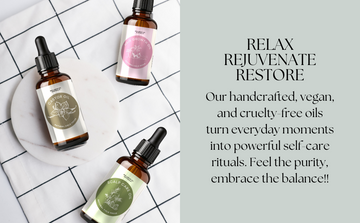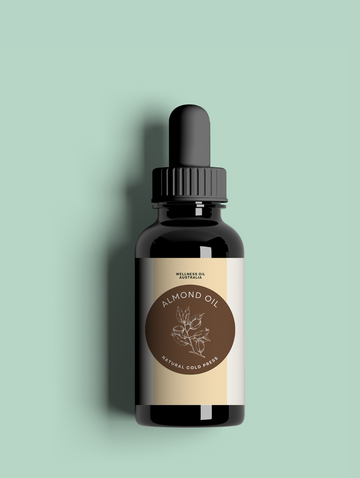If you’ve spent even five minutes on TikTok skincare, you’ve seen the debate: jojoba vs coconut vs almond oil — which one is actually the best? Some swear by coconut oil for silky hair, others can’t live without jojoba for oily skin, and almond oil fans will tell you it’s the glow secret Cleopatra never shared.
But here’s the truth: not all oils work the same for every skin type. Picking the “best oil” isn’t about popularity — it’s about what your skin needs. So let’s break it down, compare the benefits, and figure out which oil deserves a spot in your routine.
Why Oils Are Back in Trend
For a while, oils got a bad rap (“they’ll clog your pores!”). But now, with minimal routines and barrier repair trending, oils are back — and for good reason. They’re simple, natural, and multitasking. Plus, they’ve been used for centuries in beauty rituals across cultures.
The real question isn’t if you should use oils, but which one fits your skin type best.
Jojoba Oil: The Balancing Act
Ever notice how some oils feel greasy? Jojoba is different. Its structure is the closest to your skin’s natural sebum, which means your skin “recognises” it and absorbs it quickly.
Best for: oily, combination, or acne-prone skin.
Science bit: Jojoba oil helps regulate sebum production, so instead of making your skin oilier, it can actually balance things out. It’s also lightweight, non-comedogenic, and packed with vitamin E.
Benefits:
-
Balances oil production.
-
Lightweight, absorbs quickly.
-
Calms breakouts and soothes irritation.
How to use: Apply 1–2 drops after cleansing as a natural moisturiser, or blend with tea tree oil for spot treatments.
Coconut Oil: The Heavyweight Hydrator
Coconut oil has a cult following — especially for hair. It’s rich, occlusive, and creates a protective barrier that locks in moisture. But here’s the catch: it’s heavy.
Best for: very dry skin, body care, and hair masks.
Science bit: Coconut oil is high in Lauric acid, which makes it deeply moisturising and antibacterial. But on the face, it can clog pores for some people.
Benefits:
-
Intense hydration for dry patches.
-
Great as a body butter or lip balm.
-
Popular as a pre-shampoo hair mask.
How to use: Apply to dry elbows, knees, or as an overnight hair mask. Avoid it if you're prone to breakouts.
Almond Oil: The Glow Giver
Almond oil has been a beauty staple since Cleopatra’s time — and for good reason. It’s lightweight but nourishing, packed with vitamin E, fatty acids, and antioxidants.
Best for: normal, dry, or sensitive skin.
Science bit: Almond oil strengthens the skin barrier, locks in moisture, and helps improve radiance. Its non-comedogenic rating makes it safer than coconut oil for most skin types.
-
Deep hydration without heaviness.
-
Boosts natural glow and smoothness.
-
Gentle enough for sensitive skin.
How to use: Massage into damp skin after a shower, or add a few drops to your moisturiser for that healthy, radiant finish.
Quick Comparison Table
|
OIL |
TEXTURE |
BENEFIT |
AVOID |
TOP USE CASE |
|
Jojoba |
Lightweight, absorbs fast |
Oily/combination/acne-prone |
None (very safe) |
Daily face moisturiser |
|
Coconut |
Thick, heavy |
Very dry skin, body, hair |
Can clog pores on face |
Hair masks & body butter |
|
Almond |
Medium, silky |
Normal/dry/sensitive |
Rare nut allergy |
Glow-boosting skin oil |
So, Which Oil Wins?
It depends on your skin type:
-
Oily/acne-prone? Go with jojoba oil for balance.
-
Very dry or flaky? Try coconut oil on your body or hair.
-
Looking for glow + hydration? Almond oil is your best bet.
Truth is, you don’t have to pick just one. Many people rotate oils depending on the season or mix them for DIY blends (almond + jojoba is a favourite for face, coconut + almond for hair).
FAQs People Actually Ask
1. Can I use jojoba, coconut, or almond oil on my face every day?
Yes — but it depends on your skin type. Jojoba and almond are lightweight enough for daily use; coconut is better for body and hair.
2. Which oil is best for glowing skin?
Almond oil is the go-to for radiance, but jojoba works well for balancing oily skin while still giving a healthy finish.
3. Is coconut oil bad for acne?
It can clog pores for some people. If you’re acne-prone, stick to jojoba or almond.
4. Can I mix these oils?
Absolutely! Try jojoba + almond for a glow serum, or coconut + almond as a DIY body butter.
Final Thoughts
The battle of jojoba vs coconut vs almond oil doesn’t have a single winner — it’s about finding the best oil for your skin type. If your skin feels unbalanced, start with jojoba. If it’s craving deep hydration, coconut has your back. And if you’re after that healthy glow, almond oil is the classic choice.
Want to try it for yourself? Explore our [Almond Oil Collection] for glowing skin, or pair it with castor and rosemary oils for a complete natural beauty routine.



